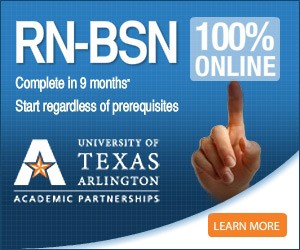As the nursing profession continues to evolve, the educational focus is also changing. One of the most significant emerging trends in healthcare today is the focus on evidence-based practice, also known as EBP.
Evidenced-based practice is often described as an approach to patient care that involves considering the best available research and practice guidelines associated with a specific clinical situation. Key elements in the successful implementation of evidence-based practice in nursing include:
- Reviewing research and studies that examine the best practices in clinical nursing.
- Interactive decision-making regarding care and treatment planning which integrates care team members, as well as the opinion of the patient and his or her family.
- Ongoing professional development education of nurses, including pursuit of advanced degree programs when available.
- Addressing clinical issues and critically examining possible practice changes.
- Strong emphasis on problem-solving skills, clinical judgment and the use of sound evidence to support clinical decisions based on research, experience and the environment.
Challenges to Evidence-Based Practice

Some of the impediments to evidence-based practice include a resistance to change practice and habits within the nursing community, the lack of ongoing education programs and poor administrative support. Although barriers exist, the successful patient outcomes from evidence-based practice have helped win support for this model of care among the medical profession as a whole.
Increased Responsibilities for Nurses Today
Because evidence-based practice places an emphasis on the knowledge, skills and experience of nurses, today’s nurses are being given more responsibility and respect than ever before. EBP focuses on specific nursing skills including critical decision-making founded in evidence and research, with a move away from traditional treatment regimes and habits that had been the hallmark of nursing for generations. Registered nurses now need strong analytic and academic research skills to complement clinic skills and hands-on patient care.
Options for Evidence-Based Practice Education
Nurses who are seeking to improve their clinical skills and expand both their knowledge base and career options should consider obtaining additional nursing education in programs that focus on EBP. Professional nursing today demands that nurses have a solid understanding of how to conduct research, critically review studies and medical reviews, and an EBP-focused education program will teach nurses these vital skills.
Some of the most accessible educational programs that include an emphasis on EBP the knowledge are the online nursing programs offered at the University of Texas at Arlington, including an RN to BSN and a Master of Science in Nursing Administration. The University of Texas at Arlington’s College of Nursing and Health Innovation, named one of the “Best of the West” by Princeton Review, offers a specialized program to allow RNs to obtain their BSN in just over a year. By pursuing an advanced nursing degree with a focus on evidence-based practice, working nurses will have access to a variety of career options in both clinical and administrative roles.